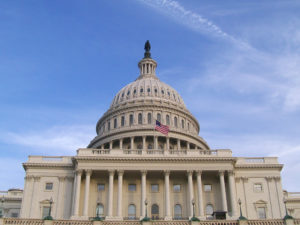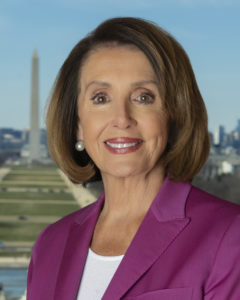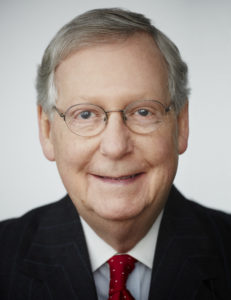
Congress adds $310B more for PPP, $60B more for EIDL small-biz COVID-19 loans
By onBusiness Practices | Legal | Market Trends
Collision repairers unable to obtain a piece of the financial aid contained in the CARES Act COVID-19 coronavirus relief bill might have a second chance.
The House and Senate have passed House Resolution 266, the “Paycheck Protection Program and Health Care Enhancement Act,” and Republican President Donald Trump has expressed support for the measure.
“My administration has worked aggressively with Congress to negotiate this critical 482-billion-dollar funding package,” Trump said Tuesday, according to a White House transcript. “We reached a deal that includes $382 billion in crucial small-business support to keep workers on the payroll; $75 billion to aid hospitals, which really need the aid, and very badly — I’m very proud of that; and $25 billion to support coronavirus testing efforts.”
The Senate approved HR 266 Tuesday, and it cleared the House on Thursday. The bill adds another $310 billion to the popular Small Business Administration Paycheck Protection Program, $50 billion more for SBA Economic Injury Disaster Loans and $10 billion more for Economic Injury Disaster Loan grants.
Both the EIDL loans and grants and PPP program were out of money when we checked the SBA’s website April 16. The CARES Act passed March 27.
Congress is answering President @realDonaldTrump‘s call to deliver additional funding for the Paycheck Protection Program! pic.twitter.com/gb2uPnjL8p
— The White House (@WhiteHouse) April 23, 2020
“We’ve — we’ve put out more money in these SBA loans than in the last 10 years of SBA,” Treasury Secretary Steven Mnuchin said Tuesday, according to a White House transcript. “So I want to thank all the banks that have worked really hard.
“We knew that when we passed this originally, if there was full take-out, we wouldn’t have enough money. That’s why we’ve worked with Congress for more money. And this is going to — you know, we’ve already impacted about 30 million workers. There’ll be a lot more. So we look forward to this having a big impact on the economy.”
 At least $30 billion worth of the new PPP funding must go to small banks and credit unions with assets of at least $10 billion but less than $50 billion. Another minimum of $30 billion must go to even smaller banks and credit unions (less than $10 billion in assets) or community financial institutions.
At least $30 billion worth of the new PPP funding must go to small banks and credit unions with assets of at least $10 billion but less than $50 billion. Another minimum of $30 billion must go to even smaller banks and credit unions (less than $10 billion in assets) or community financial institutions.
Both House Speaker Nancy Pelosi, D-Calif., and Senate Majority Leader Mitch McConnell, R-Ky., claimed their party deserved credit for elements of the bill’s small business assistance.
“Democrats flipped this emergency package from an insufficient Republican plan that left behind hospitals and health and frontline workers and did nothing to aid the survival of the most vulnerable small businesses on Main Street,” Pelosi said in a statement announcing a deal on the bill Tuesday. “We have achieved an agreement that follows the path set by the bipartisan CARES Act by strengthening the Paycheck Protection Program, expanding small business support beyond PPP by increasing funding for emergency disaster loans and grants …
“For small businesses: we have strengthened the Paycheck Protection Program with $310 billion in additional funding, with $30 billion reserved for community-based lenders, small banks and credit unions and $30 billion for mid-sized banks and credit unions. We are expanding small business support beyond PPP by securing $50 billion for SBA emergency disaster lending, translating into more than $350 billion in loans, and $10 billion in SBA emergency disaster grants. We have also secured strong protections to ensure that our nation’s farmers have access to this vital assistance.”
“Republicans never wanted this crucial program for workers and small businesses to shut down,” McConnell said in a statement Tuesday. “We tried to pass additional funding a week before it lapsed. But Democratic leaders blocked the money and spent days trying to negotiate extraneous issues that were never on the table. I am grateful our colleagues have walked away from those demands and will finally let Congress act.
“This bipartisan agreement will provide ($310 billion) in additional funding for the Paycheck Protection Program, which is already helping millions of small-business employees receive paychecks instead of pink slips. This is even more money than Senate Republicans first requested. At our request, there will now be a special focus on community banks and credit unions. Thanks to the hard work of colleagues such as Senator Collins and Senator Rubio, there will also be $60 billion more for Economic Injury Disaster Loans, and because of the hard work of Senator Roberts, Senator Daines, and our other colleagues from rural states, it will be clear that farmers and ranchers are eligible.”
PPP
The CARES Act had allocated $349 billion for the PPP loans — but demand from businesses depleted those funds in less than two weeks. The new bill bumps the allocation to $659 billion. If you’re wondering about your bank’s participation or are trying to find a facility for such a loan, the SBA has posted a list of participating lenders by state as of Thursday.
As of noon April 16, more than $342 billion net had been approved through nearly 1.7 million loans by 4,975 lenders, according to the SBA. The average loan came out to $206,000.
The SBA has not yet responded to our request on how much PPP money went to automotive repairers. Best we can say for now is that “Other Services” — the government’s NAICS category that contains automotive repairers but also many unrelated fields — saw 155,319 loans which combined added up to more than $17.7 billion as of April 16.
Under the PPP, collision repairers can borrow up to the equivalent of 10 weeks of payroll (up to $10 million) and have it all forgiven, with amount waived proportional to the amount of employees kept on and without pay cuts. The SBA said small businesses must spend at least 75 percent of the money on payroll and the remaining 25 on payroll or other core expenses (e.g. rent) during eight weeks to have the debt wiped clean.
The loans are guaranteed by the SBA and require no collateral or personal guarantee.
EIDL
As noted above, H.R. 266 also boosted the amount available for SBA economic injury disaster loans and grants.
Congress seeded that program with $10 billion in the CARES Act, but that program also ran out of money last week, as did apparently all funds available for the EIDL loans in general.
Companies with 500 or fewer employees could seek to borrow up to $2 million under the EIDL program — and applicants could request advance grants of $10,000 on those loans. The government was required to pay the advance within three days.
The SBA said it had approved 26,919 EIDL loans worth nearly $5.57 billion combined as of Monday. It also cut 755,476 advances for more than $3.93 billion combined as of Monday.
Even if the SBA denied an EIDL loan, applicants can keep the $10,000. If the business got the bigger loan, the agency would forgive the $10,000.
A personal guarantee wasn’t necessary on EIDL loans up to $100,000, and any business operational by Jan. 31 could apply. The advances can be used for sick leave for employees “unable to work due to the direct effect of the COVID–19,” making payroll, paying higher materials costs from a different supplier if the supply chain was disrupted, rent or mortgages, or covering other debt at a time of revenue loss.
Repairers could apply for both the PPP and the EIDL, but the $10,000 advance would be subtracted from the amount forgiven in the PPP, according to a Senate Small Business Committee FAQ. The loans had to be used for different purposes, according to the committee.
Correction: An earlier version of this article incorrectly stated the net amount disbursed in PPP loans as of April 16. The program had given out more than $342 billion. The article has since been updated to correct this.
Correction: An earlier version of this story incorrectly described the forgivable amount of PPP loans.
Businesses can borrow about 2.5 months worth of payroll, up to $10 million. The SBA forgives the whole thing and interest if the money was spent during an eight-week period; it decreases the forgivable amount proportional to cuts in the company’s workforce or pay. At least 75 percent of the borrowed amount must go to payroll during those eight weeks, the remaining 25 percent can be used for certain eligible expenses including utilities and rent.
“The amount of loan forgiveness can be up to the full principal amount of the loan and any accrued interest,” the SBA wrote April 15. “That is, the borrower will not be responsible for any loan payment if the borrower uses all of the loan proceeds for forgiveable purposes described below and employee and compensation levels are maintained. The actual amount of loan forgiveness will depend, in part, on the total amount of payroll costs, payments of interest on mortgage obligations incurred before February 15, 2020, rent payments on leases dated before February 15, 2020, and utility payments under service agreements dated before February 15, 2020, over the eight-week period following the date of the loan. However, not more than 25 percent of the loan forgiveness amount may be attributable to non-payroll costs.”
The article has since been corrected to address this.
More information:
SBA “Coronavirus (COVID-19): Small Business Guidance & Loan Resources”
SBA “Coronavirus Relief Options” page
SBA Paycheck Protection Program (PPP) webpage
SBA Economic Injury Disaster Loan advance webpage
PPP lenders in your state as of April 23, 2020
“Pelosi, Schumer Joint Statement on Agreement with Administration on Interim Emergency Package”
Speaker Nancy Pelosi’s office, April 21, 2020
“McConnell Welcomes Bipartisan Agreement to Continue Coronavirus Relief”
Majority Leader Mitch McConnell’s office, April 21, 2020
“Remarks by President Trump and Members of the Coronavirus Task Force in Press Briefing”
White House, April 21, 2020
Images:
The U.S. Capitol is shown. (ampueroleonardo/iStock)
U.S. House Speaker Nancy Pelosi, D-Calif., (Provided by U.S. House)
U.S. Senate Majority Leader Mitch McConnell, R-Ky. (Provided by McConnell’s office)

